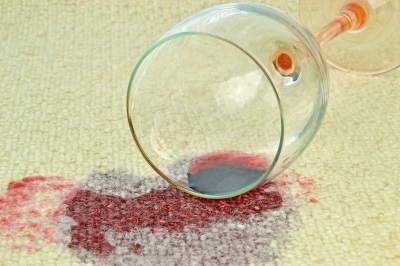A study of senior health by the United Health Foundation ranked Florida 28th in the nation for providing healthcare for those over age 65. The study evaluated more than 30 areas of healthcare and health management. Florida does very well with issues like diabetes management, but fares less well on availability of home health care workers, especially in comparison to the number of seniors with multiple, chronic conditions. Another area of concern is alcohol use. Florida ranks 44th in chronic drinking. A total of 187,000 Florida seniors admitted to chronic alcohol consumption.
Studies and experience indicate that these numbers likely underestimate the nature of the problem. Excessive drinking in elders is often hidden or overlooked. Many families don’t know what, if anything, should be done about a loved one’s drinking. Stories range from the Dad who always drank, but the family does not notice the issue is worsening until a bad fall to an elderly aunt who drank very little but began drinking to help her fall asleep at night or to deal with her husband’s death. The New York Times published a great article on this growing, and often hidden, issue and some of its particular complexities.
Studies suggest that about 2/3 of older alcoholics are what could be described as “early onset”, in other words they have probably been alcoholics for some time. The other 1/3 are termed “late onset”, developing a drinking problem in their late 40s or 50s (or later). This group tends to be highly educated and drinking is often precipitated or exacerbated by a stressful life event.
Reasons alcohol use is a particular concern for elders:
- Alcohol may act differently in older adults. The body’s ability to metabolize the alcohol may not be the same and other health conditions and medications may interact/exacerbate the effects.
- Drinking is a risk factor for falls and injuries and long-term drinking can damage the body’s balance system.
- Drinking alcohol over time may:
- Lead to some kinds of cancer, liver damage, immune system disorders, and brain damage.
- Worsen some health conditions such as diabetes, osteoporosis, high blood pressure, and ulcers.
- Make some medical problems hard for doctors to identify and treat. For example, alcohol causes changes in the heart and blood vessels and these changes can dull pain that might be a warning sign of a heart attack.
- Cause some older people to be forgetful and confused.
- Medication mixed with alcohol can be particularly dangerous. Many older adults take at least one medication. Some of the particular concerns related to mixing medication and alcohol include:
- Aspirin and drinking increases your risk of stomach or intestinal bleeding.
- When combined with alcohol, cold and allergy medicines (antihistamines) cause drowsiness.
- Alcohol used with acetaminophen may cause liver damage.
- Some medicines (such as cough syrups and laxatives) can have a high alcohol content.
- Alcohol can be particularly deadly used with some sleeping pills, pain pills, or anxiety/anti-depression medicine.
How do I know if alcohol use is a problem in my elderly loved one?
The National Institute on Alcohol Abuse and Alcoholism recommends that people over age 65 should have no more than seven drinks a week and no more than three drinks on any one day. Of course, with medical conditions and medications, some older people may be in danger from even small amounts of alcohol. There isn’t really an easy answer to this question, but drinking certainly may be a concern if you are wondering about it or if it has already caused issues like falling or visits to the emergency room.
It is always best to be honest with your medical practitioners about drinking, but this is especially true for elders with chronic conditions. It is vital that doctors know about drinking patterns when prescribing medications and treatments. It can also be a big concern when a senior is hospitalized or going into surgery and no one realizes withdrawal will be an issue. The alcohol use may be causing falls, medical problems and cognitive issues, and not knowing the cause can lead to misdiagnoses and worse.
We will address more about this issue in future blog posts, including ways to address the problem and resources. You can subscribe to our newsletter for updates and we encourage your comments and questions. Need help or want to discuss you concerns confidentially with a professional? Call our Senior Care Consultant at 727-447-5845 for a free consultation.
You can read more and find resources from the National Institute on Alcohol Abuse and Alcoholism on older adults and drinking.
*Image courtesy of Grant Cochrane, FreeDigitalPhotos.net

 Popular Downloads
Popular Downloads


 Get Our Newsletter!
Get Our Newsletter! Mission Statement
Mission Statement

